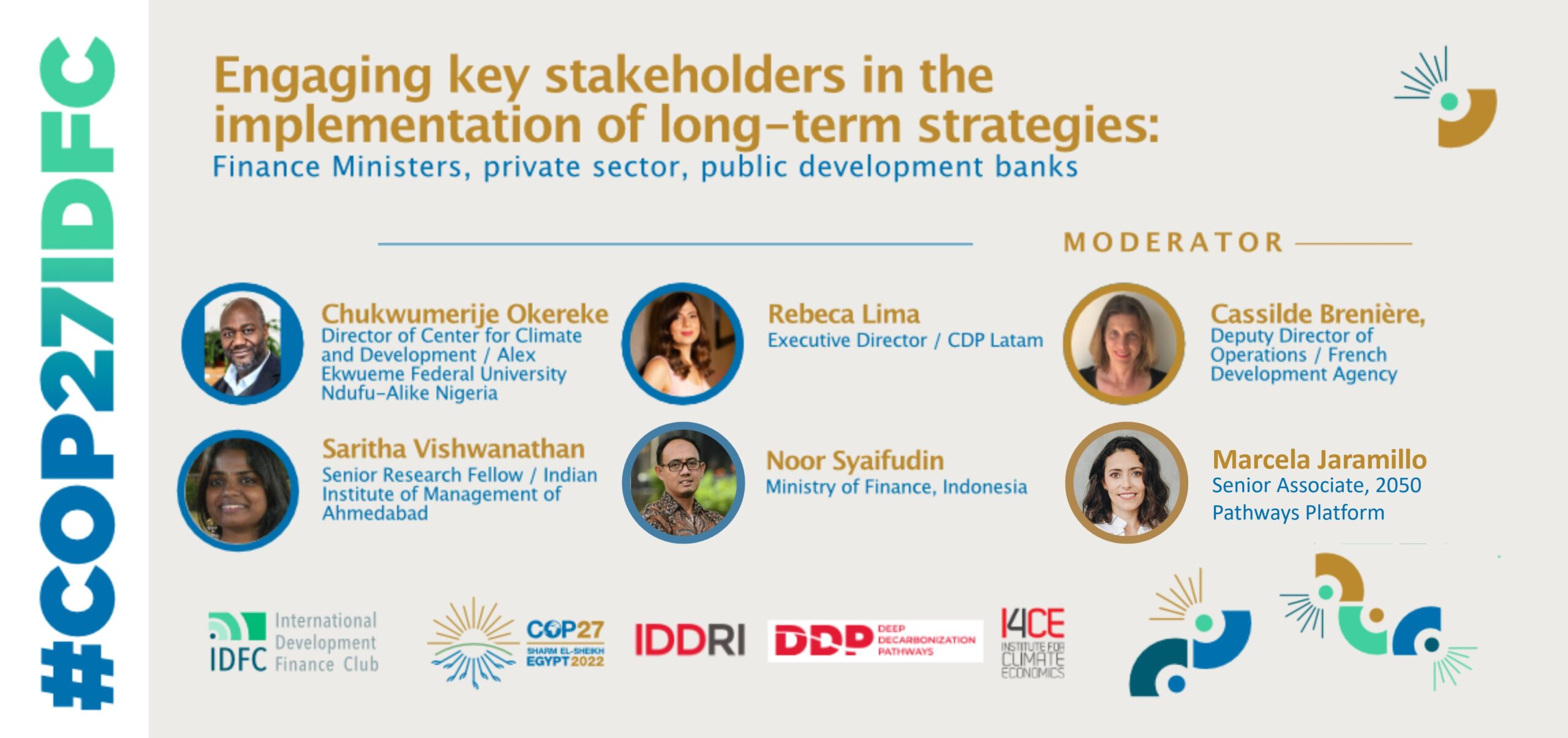Engaging key stakeholders in the implementation of long-term strategies
Webinars - By : Louise KESSLER, PhDDate : Thursday, 17th November , 13.30 – 16.30 (Paris time)
Location: IDFC pavilion and online
Organizing: I4CE IDDRI, ADEME
The Paris Agreement enacted two complementary dynamics for an ambitious action on climate. On the one hand, according to a bottom-up approach, the mitigation and adaptation commitments as well as the policies deployed in this respect fall to the national governments, who bear the responsibility to submit their national contributions to the global effort and to define the actions they intend to engage to achieve their objectives. On the other hand, non-state actors, notably companies, have been officially recognized for the first time within the framework of international negotiations, have significantly contributed to the construction of a favorable dynamic and have voluntarily taken more and more decarbonisation commitments.
However, these dynamics remain too disconnected at this stage. Countries continue to revise their Long-Term Strategies (LTSs) and Nationally Determined Contributions (NDCs), but these strategies are often missing some descriptions relevant for the implementation by the economic actors of the society. On the other hand, non-state actors are very dynamic, developing more and more concrete initiatives, but without strong governmental support as they are struggling in identifying where to act most effectively.
This session has shared lessons from different in-country initiatives regarding the current implementation of long-term strategies and stakeholder engagement. It facilitated a discussion with different stakeholders from finance ministries, from development banks, from the private sector, from experts from developing countries and from international institutions.
Moderator: Cassilde Brenière, Deputy Director of Operations / French development agency
Program:
- Part 1 – How to engage Finance
- Part 2 – How to engage the private sector
- Part 3 – How does implementation take place at country level
with the participation of
- Chukwumerije Okereke, director of Center for Climate and Development from Alex Ekwueme Federal University Ndufu-Alike, Nigeria;
- Rebeca Lima, executive director from Carbon Disclosure Project (CDP) Latam;
- Saritha Vishwanathan, senior Research Fellow from the Indian Institute of Management of Ahmedabad;
- Noor Syaifudin, Ministry of Finance, Indonesia;
- Louise Kessler, program Director – Economics, and Chloé Boutron, research fellow- Economics, d’I4CE.

